Patricia Routledge, as patron of the Beatrix Potter Society, presents a documentary on the author's life and work.
Related Movies

Xaviera Hollander, the Happy Hooker: Portrait of a Sexual Revolutionary (2008)
Xaviera Hollander, 'The Happy Hooker': Portrait of a Sexual Revolutionary is a documentary about one of the world's most important sexual icons. Interviews with Larry King and commentary from America's foremost sexologists explore Xaviera's rise and fall, her deportation from the United States and Canada, and her political significance to the feminist movement.
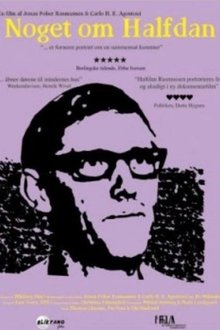
Something About Halfdan (2006)
A moving portrait of one of the most loved and read Danish poets, Halfdan Rasmussen. The film covers both the early years with poverty and wartime on to success and the humorous nonsense verses that has made Rasmussen one of the most read authors in Denmark.
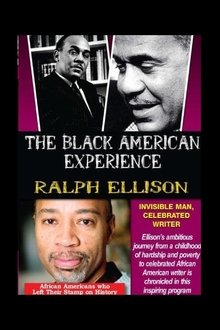
Ralph Ellison: Invisible Man, Celebrated Writer (2005)
Ralph Ellison was an African-American writer and essayist, who's only novel Invisible Man (1953) gained a wide critical success. Ellison's ambitious journey from a childhood of hardship and poverty to celebrated African American writer is chronicled in this inspiring program through exclusive interviews and personal recollection.

Beecham (1990)
1990 TV adaptation of a 1979 biographical play by Ned Sherrin & Caryl Brahms, based on the life of conductor and impresario Sir Thomas Beecham. With Timothy West as Beecham.

The Writer In America : Toni Morrison (1978)
An interview with a young Toni Morrison. The video also shows Toni Morrison going shopping, at a party, and at work. Her commentary provides an incisive look behind her written words, and at the vision, technique, and lifestyle of this award-winning author. She reads from The Bluest Eye, Sula, and Song of Solomon.

The Man Who Drank the Universe (2005)
It is late 2004, and 34-year-old Englishman Alistair Appleton is about to fly from London to the Brazilian coast, where he will drink ayahuasca for the first time. With wit, insight, and sensitivity, Alistair shares this experience with us, and chats with some fellow participants before and after the ayahuasca ceremonies. For the past few years, Alistair had been working as a television presenter. In 2000, he started making trips to the Centre for World Peace and Health in Scotland to learn how to meditate. When clinical psychologist Silvia Polivoy opened an ayahuasca healing center in Bahia in 2004, Alistair faced his fears and seized the opportunity to attend.

Sarah Thankam Mathews: After All This (2024)
Following the success of her debut novel, All This Could Be Different, author Sarah Thankam Mathews embarks on her second novel, drawing from her adolescence between India and Oman. As Sarah excavates lost place and time, she must contend with the weight of truthful representation and the contradictions within her childhood memories.
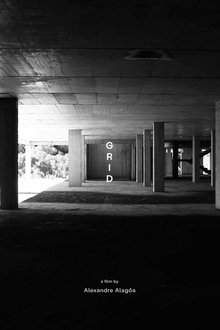
Grid (2021)
A ritual of grids, reflections and chasms; a complete state of entropy; a space that devours itself; a vertigo that destroys the gravity of the Earth; a trap that captures us inside the voids of the screen of light: «That blank arena wherein converge at once the hundred spaces» (Hollis Frampton).
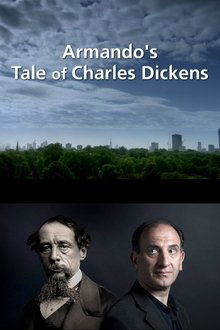
Armando's Tale of Charles Dickens (2012)
Armando Iannucci presents a personal argument in praise of the genius of Charles Dickens. Through the prism of the author's most autobiographical novel, David Copperfield, Armando looks beyond Dickens - the national institution - and instead explores the qualities of Dickens's work that still make him one of the best British writers. While Dickens is often celebrated for his powerful depictions of Victorian England and his role as a social reformer, this programme foregrounds the elements of his writing which make him worth reading, as much for what he tells us about ourselves in the twenty-first century as our ancestors in the nineteenth. Armando argues that Dickens's remarkable use of language and his extraordinary gift for creating characters make him a startlingly experimental and psychologically penetrating writer who demands not just to be adapted for television but to be read and read again.

Tolstoy: The Man Behind Anna (2007)
An examination of the life of great Russian author Leo Tolstoy, who penned the 1877 novel Anna Karenina.

Diane di Prima: Dipping In (NaN)
Diane di Prima (1934-2020) was a poet, writer, publisher and playwright whose work has been associated with the Beat movement. Born and raised in New York City, she associated with poets such as Amiri Baraka, Jack Kerouac and Frank O’Hara, co-editing The Floating Bear magazine with Baraka in the 60s and co-founding the Poets Press and the New York Poets Theatre. Throughout her life in New York and later out West, both her sense of anarchic limitlessness and her zeal for collaboration guided her work.

Diane di Prima: Poet's Theater (NaN)
Diane di Prima (1934-2020) was a poet, writer, publisher and playwright whose work has been associated with the Beat movement. Born and raised in New York City, she associated with poets such as Amiri Baraka, Jack Kerouac and Frank O’Hara, co-editing The Floating Bear magazine with Baraka in the 60s and co-founding the Poets Press and the New York Poets Theatre. Throughout her life in New York and later out West, both her sense of anarchic limitlessness and her zeal for collaboration guided her work.

Diane di Prima: The Floating Bear (NaN)
Diane di Prima (1934-2020) was a poet, writer, publisher and playwright whose work has been associated with the Beat movement. Born and raised in New York City, she associated with poets such as Amiri Baraka, Jack Kerouac and Frank O’Hara, co-editing The Floating Bear magazine with Baraka in the 60s and co-founding the Poets Press and the New York Poets Theatre. Throughout her life in New York and later out West, both her sense of anarchic limitlessness and her zeal for collaboration guided her work.
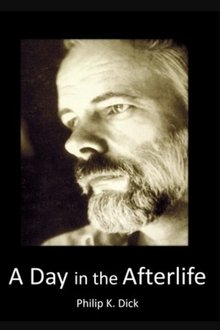
Philip K Dick: A Day in the Afterlife (1994)
A poetic look at the life and legacy of legendary author Philip K. Dick (1928-1982), who wrote over over a hundred short stories and 44 novels of mind-bending sci-fi, exploring themes of authority, drugs, theology, mental illness and much more.
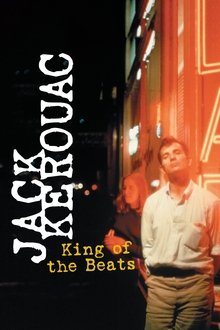
Jack Kerouac: King of the Beats (1985)
Jack Kerouac's life is examined through interviews with his contemporaries and friends including Allen Ginsberg, Lawrence Ferlinghetti and William S. Burroughs. The film also employs dramatic recreations of Kerouac's life beginning with his early childhood.

No Maps for These Territories (2000)
On an overcast morning in 1999, William Gibson, father of cyberpunk and author of the cult-classic novel Neuromancer, stepped into a limousine and set off on a road trip around North America. The limo was rigged with digital cameras, a computer, a television, a stereo, and a cell phone. Generated entirely by this four-wheeled media machine, No Maps for These Territories is both an account of Gibson’s life and work and a commentary on the world outside the car windows. Here, the man who coined the word "cyberspace" offers a unique perspective on Western culture at the edge of the new millennium, and in the throes of convulsive, tech-driven change.
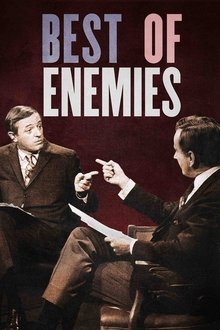
Best of Enemies (2015)
A documentary about the legendary series of nationally televised debates in 1968 between two great public intellectuals, the liberal Gore Vidal and the conservative William F. Buckley Jr. Intended as commentary on the issues of their day, these vitriolic and explosive encounters came to define the modern era of public discourse in the media, marking the big bang moment of our contemporary media landscape when spectacle trumped content and argument replaced substance. Best of Enemies delves into the entangled biographies of these two great thinkers, and luxuriates in the language and the theater of their debates, begging the question, "What has television done to the way we discuss politics in our democracy today?"
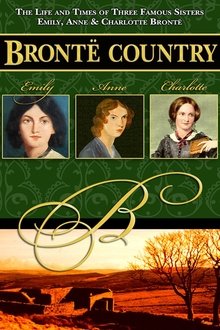
Brontë Country: The Story of Emily, Charlotte & Anne Brontë (2002)
Travel back to Victorian Britain and wander the cobbled streets of Haworth to the sites that inspired the great Brontë sisters’ classic novels.

Richard Wright: Native Son, Author and Activist (2009)
RICHARD WRIGHT was an African-American author of novels, short stories and non-fiction that dealt with powerful themes and controversial topics. Much of his works concerned racial themes that helped redefine discussions of race relations in America in the mid-20th century. Born on a plantation in Mississippi, Wright was a descendent of the first slaves who arrived in Jamestown Massachusetts. This program follows his arduous path from sharecropper to literary giant. Through authors like H.L. Menken, Sinclair Lewis, Theodore Dreiser, he discovered that literature could be used as a catalyst for social change. In 1937 Wright moved to New York and his work began to garner national attention for it's political and social commentary. Much of Wright's writing focused on the African American community and experience; his novel Native Son won him a Guggenheim Fellowship and was adapted to the Broadway stage with Orson Welles directing in 1941.